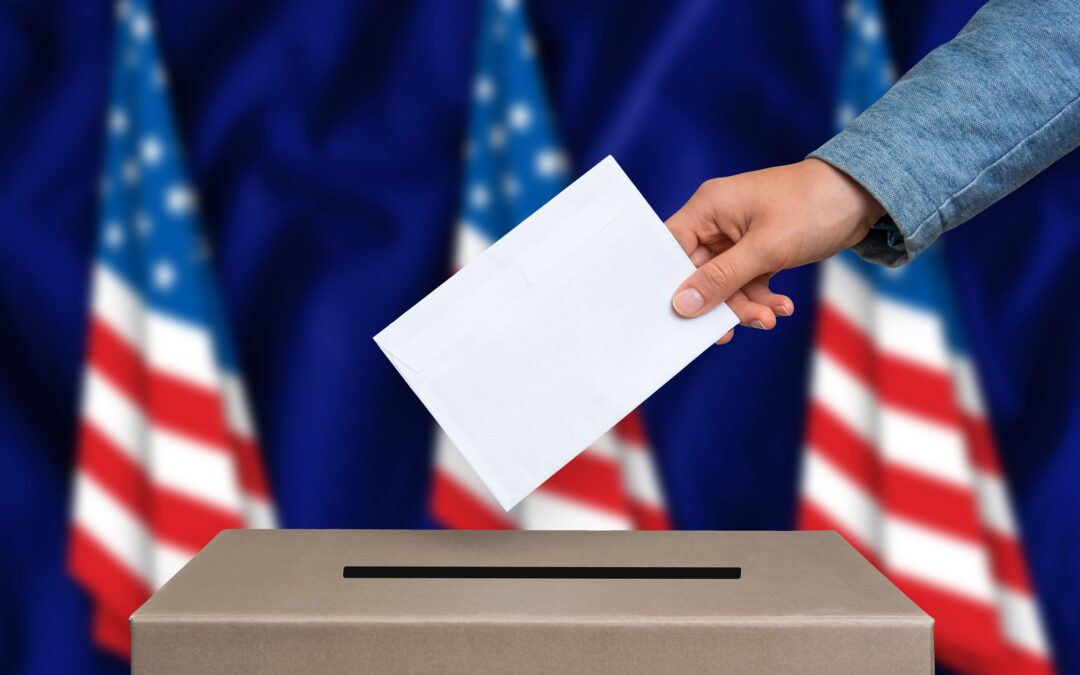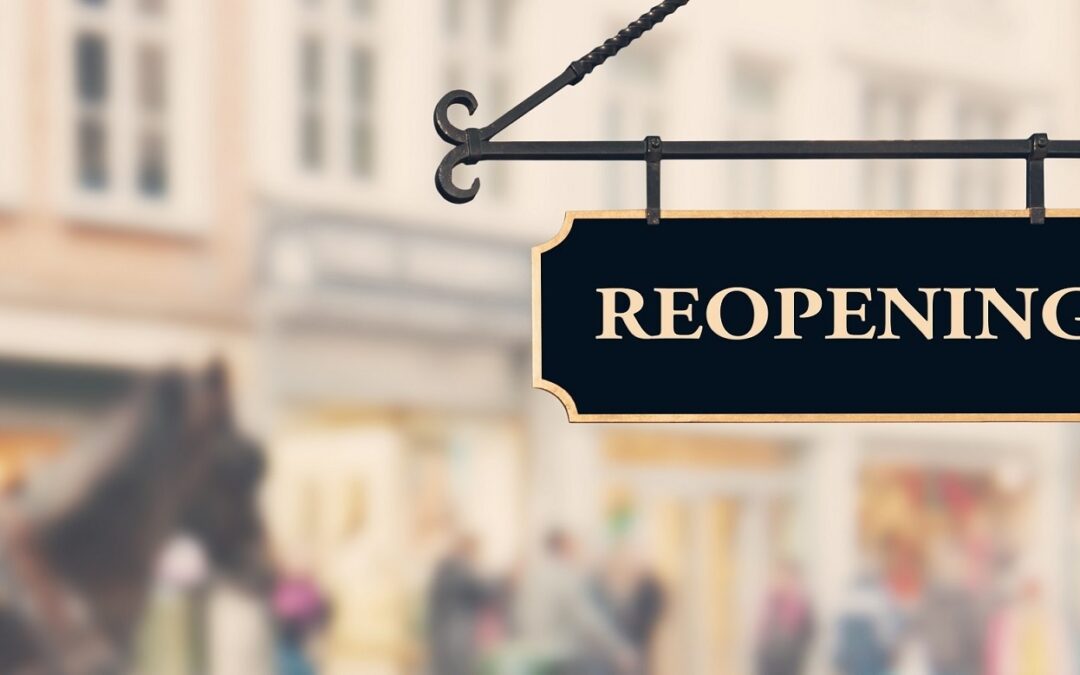
by admin | Mar 9, 2021 | News and Updates, Tax
It’s not every day that an innovative tax reform proposal also results in exposing one of the biggest political lies of the year. Yet that is exactly what has happened with the introduction of Senate Bill 1783, legislation introduced by State Senator Javan Mesnard.
Geared toward promoting small business growth and investment, SB 1783 would establish an optional, alternative small business tax code in Arizona. Under this proposal, policymakers would be able to craft and develop a tax code tailored specifically for small business owners, with an eye at setting competitive, pro-small business tax rates.
Exploring tax reform geared toward small business makes a lot of sense, especially since Arizona recently joined the ranks of other uncompetitive high tax states. Arizona currently has the 9th highest small business income tax rate, 11th highest state sales tax and 20th highest business property tax in the nation.
The ability to craft a pro-business tax code is reason enough to support SB 1783, but it turns out the legislation would have another consequence. If enacted, small businesses that elect to use this new system would also not be required to pay the income tax surcharge that was included in Proposition 208.
As a result, supporters of Proposition 208 have come out in force against the bill, claiming that SB 1783 would be an “end-run” around the initiative. This was a somewhat surprising position for them to take, especially since it completely undermines what they sold voters when Prop 208 was on the ballot.
Make no mistake, the backers of Proposition 208 were unequivocal in their position that the measure would NOT tax small business. In the official AZ Publicity Pamphlet issued to every voter in the state prior to the election, the Invest in Ed campaign stated in their ballot argument that the amount owed by small businesses under 208 would be “zero, nothing. The measure ONLY applies to personal income, not business income. This is worth repeating: There are no business-tax increases. The surcharge only applies to personal income.”
The drafters of the measure were just as emphatic, proclaiming in debates and in speeches that it was “legally impossible for any business to be taxed under Prop 208.” Any concerns that small business would be harmed by the 208 surcharge were dismissed as inaccurate fearmongering.
Now that the Joint Legislative Budget Council’s (JLBC) fiscal note has shown that, in fact, Prop 208 could potentially be a massive tax increase on small business, Prop 208 proponents are trying to figure out a way to oppose SB 1783 while still claiming that small business would not be taxed.
One of the most interesting takes has been to proclaim that Prop 208 was never really a tax on small business, it only taxes the profits from small business. Now, these types of arguments might sound okay inside the walls of a think tank, but go try and tell a small business owner that the revenue generated from their small business isn’t really from their small business. In the real world, everyone knows that income from a business is, in fact, from a business.
Unable to directly address their previous statements without acknowledging their duplicity, opponents of SB 1783 are left making general statements about how this bill is “thwarting the will of voters.” We would contend the opposite: SB 1783 honors the will of the voters by ensuring that the promises made by the supporters of Prop 208 are kept.
Fundamentally, the purpose of SB 1783 is to craft an innovative tax code designed to attract and promote small business growth in the state. Lawmakers should support the legislation for this reason alone.
But if SB 1783 provides an opportunity to reinstall trust with voters by protecting small businesses from deceptive tax increases, then even more reason this bill needs to pass.

by admin | Mar 4, 2021 | Elections, News and Updates
More than 100,000 Arizona voters on the Permanent Early Voting List (PEVL) have not voted by early ballot in the past four years.
Think about that for a moment. These are people who asked to be on the PEVL but are choosing not to use the system. Not only does this waste taxpayers like you money by sending out unwanted ballots, but it compromises the integrity of our elections.
If someone isn’t using the system, they shouldn’t continue to receive an early ballot by mail. Thankfully, the Arizona Senate addressed the PEVL on Tuesday by passing SB1485, a bill sponsored by Senator Michelle Ugenti-Rita (R-LD23). And predictably, as the bill heads to the Arizona House, Democrats are losing their minds. While most of them are mischaracterizing this bill as “voter suppression,” others have called it a “full-on assault on Democracy,” and Representative Athena Salman (D-LD26) couldn’t help but label it as “racist.”
But while Arizona Democrats proceeded to hurl unhinged attacks and insults at proponents of the legislation, it’s important to look at what this bill actually does. And it’s not that complicated.
SB1485 simply changes the name of the list from the PEVL to the Early Voting List (EVL). That means voters can continue to vote early and by mail as long as they are on the list. But if an individual doesn’t vote by early ballot in both the primary election and the general election for two consecutive cycles, he or she will receive a notice from their county recorder. Failure to respond to the notice means the voter will be removed from the list.
As you can see, this isn’t some sinister conspiracy like Democrats are making it out to be.
There’s nothing in the bill that prevents a voter from being placed back on the list. And it certainly has no impact on someone’s voter registration status.
However, Democrats would rather cry wolf about “voter suppression” and “racism” instead of recognizing that this is a bill that should be embraced by all parties. Is it because they know they stand to benefit from outdated voter rolls or a deeply flawed mail-in voting system?
More than likely, that’s the case.
The fact is that distrust in this past November’s election remains high. And mail-in voting is more prone to mistake, mishap, and mischief. But that doesn’t mean it should be eliminated. Mail-in voting is popular in Arizona, and SB1485 allows for it to continue. But additional security measures are necessary to protect this method of voting.
Once fraud is in the election system, it is extremely difficult to prove and root out. Cleaning up voter rolls by ensuring the EVL is kept up to date by removing deceased persons, citizens who have moved to another state, duplicate voter files, and anyone who isn’t actively using the system is critically important.
While more steps are needed to improve election integrity through the state, SB1485 is a step in the right direction. Now, it’s up to the House to pass this crucial piece of legislation.

by admin | Mar 2, 2021 | News and Updates
It was one year ago this month when President Trump commented that the cure cannot be worse than the problem. Sitting now at day 351 of 15 days to slow the spread, restaurants are still limited to 50% capacity, bars are closed, gyms are limited to 25% capacity, and thousands of Arizona students haven’t seen the inside of a classroom in months. It is time to recapture a sense of normalcy by protecting businesses, limiting liability exposure, and putting an end to school shutdowns. Several bills at the legislature this session aim to do just that.
Protecting Businesses from Policing Mask Mandates
Over the course of the perpetual lockdown, businesses have been expected to assume the role of the state by policing mask mandates from counties, cities, and towns in fear of shutdowns, fines, or other draconian penalties. In the House, two bills address this issue and protect businesses from emergency orders.
HB2770, introduced by Rep. Chaplik, passed out of the House Commerce committee just a couple weeks ago on a party line vote. The bill is simple in its approach, asserting that businesses are not required to enforce mask mandates from the state, any agency, county, city, or town.
HB2570, introduced by Rep. Hoffman, passed out of the House Government & Elections on February 18 on a party line vote. The bill would protect businesses by prohibiting any agency, county, city, or town from revoking a business’s license for not complying with a state of emergency mandate, unless there is clear and convincing evidence that the business was the actual cause of transmission of the disease addressed in the emergency order.
Protecting Businesses and Other Organizations from Civil Liability
Even if businesses are allowed to open back up and the threat of license revocation is ended, businesses and organizations would still risk civil liability suits from their employees and customers.
After failing to pass civil liability protections at the end of the last legislative session, SB1377, introduced by Sen. Leach, passed the Senate by a vote of 18-12 last week. The bill would protect a provider from civil liability during a public health emergency unless there is clear and convincing evidence that the provider failed to act or acted in a manner that was grossly negligent.
This is a necessary measure to ensure businesses can open with reasonable protections for employees and patrons, without leaving them exposed to frivolous lawsuits.
Putting an End to School Shutdowns
At this time, even the CDC is reporting that COVID transmission is not a concern for in-person learning. Yet thousands of students are still out of the classroom, leading to decreasing performance and growing mental health concerns. And taxpayers are still expected to foot the bill for empty seats.
In his State of the State, Governor Ducey insisted he will not fund empty seats. But just a cursory scroll through the Department of Education dashboard reveals that even today, the share of schools that are in person are far outweighed by not only those that are hybrid, but those that are entirely distanced.
Arizona must continue to reopen businesses and schools. The health of our businesses, economy, and children depends on it.




Recent Comments